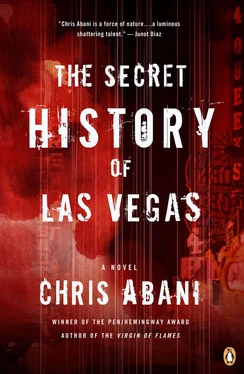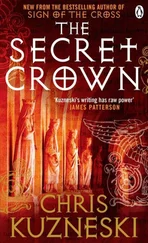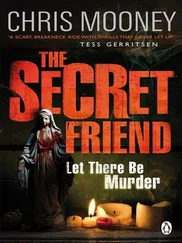That was how the years went by, she getting sicker, the twins getting bigger until Water couldn’t stand in the tank anymore but sat cross-legged at the bottom, still reading, always reading. Fire held rapid-fire philosophical debates with customers while Water read, pausing only occasionally, when prodded to engage, to look up and speak in simple facts like: cats cannot taste sweet things, or, cold water weighs more than hot.
Their fame, if one can call this fame, spread, and soon tourists were stopping over just to see them. It wasn’t long before a traveling circus came by, more sideshow than circus, truth be told. The owner, a Mr. Jacobs, paid a hundred dollars to see the twins.
It’s more than you need to pay, Selah said.
As you can see, we are alike, Mr. Jacobs said. You and I, parents to what some might call freaks but which I tend to think of as marvels of the Lord’s creativity. And in my sideshow, all the marvels are natural, he boasted. Why, that’s why we travel under that name, Jacob and the Lord’s Marvels, he explained, himself a man with what looked like lobster claws where his hands should be. And we are all like a family, he added.
We are, the midget with him said. We are a family.
Selah thought the midget had the saddest eyes she had ever seen.
Mr. Jacobs offered Selah a very good deal. To take the boys and look after them, teach them how to have a life in his show. In exchange he would pay for her to live in a hospice until she passed in her sleep. She demurred and coughed blood into a handkerchief, a clump of her hair falling out disgracefully as she did.
If you won’t have the money, what will you have?
Selah glanced at the blood in her handkerchief. The boys were twelve and Water was smarter than she would ever be.
Swear on this blood to treat them like your own, she said.
I sure will, Mr. Jacobs said, offering a lobster claw. And here is my own daughter so you may see that I am true.
And a tall girl, slender as a wisp of smoke, walked forward.
How old are you, Selah asked.
Twelve, the girl said.
And your name?
Fred.
That seemed to cement it for her. Although to confirm, Selah drew a card and laid it faceup.
The Hanged Man.
She sighed, a sound of infinite sadness.
Come by my house tomorrow, she said. It’s five miles from town, under the blue-barked bristlecone.
Mr. Jacobs nodded.
That night, through bouts of hacking coughs and much blood spat into handkerchiefs, Selah sang the boys to sleep with their favorite lullaby.
Then, kissing them on the cheek, she let herself out just before dawn, when the mist was still upon the ground and dragging a length of rope behind her, walked up the slight rise behind the house to the bristlecone tree.
A desert wind rippled across Lake Mead and through the tamarisk on the shore. Dotting the reedy grass, the ghostly foundations of the sunken Mormon town of St. Thomas returned with the water level falling, like a rude reminder of all the secrets this place kept.
Detective Salazar was taken by the quiet of the ghost town. He liked that the only sound was the wind through the needle-leaved shrubs, the occasional birdcall, and the crunch of shells underfoot. He went there as often as he could, but not for the scenery or the quiet. It was his habit to visit crime scenes, long after the evidence had been tagged, bagged, and collected. He came to this site where, two years before, dead homeless men had begun appearing in dumps of ten, sometimes twelve, occasionally fewer, in an untidy pile. He combed over it again and again, convinced there was something he had overlooked, something that would break the case. Other times it was just to sit with the spirits of the place, as he liked to explain to his former — now retired — partner, Vines.
Shitload of good it does, Vines had told him.
But Salazar was convinced it did.
Maybe Vines was right, though. Even with increased patrols, they hadn’t been able to apprehend the killer. The local police had called in the FBI and even psychiatrists and specialists in psychopathy from a local institute, the Desert Palms, all to no avail.
Then one day the killings stopped, but not before Salazar came upon the body of a teenager in the last dump. It wasn’t only her age that marked her apart, or the fact that she was the only girl who had ever shown up at the body dumps. It was something else, something about her eyes, about the serenity that shone from them belying the thick finger bruises around her neck. That girl haunted him, kept him returning to the different dump sites around the lake for the last year. He was determined to find her killer.
Two months ago, at the end of summer, the body dumps had begun again, and this time Salazar didn’t wait for the case to be assigned to him. He asked for it. Demanded it. He was due to retire soon, anytime he wanted to, as Human Resources put it. This would be his swan song, his last good thing. The only part he truly regretted about being a homicide detective was that he never arrived in time to save anyone. This would change that for him.
But it was now Halloween and he had no leads, was no closer to solving the murders. He looked down at his watch—4:00 p.m. If he was going to leave, he had to do it soon; otherwise he’d be stuck in traffic. But still, he didn’t move. He looked out across the water.
• • •
Across the lake, unknown to Salazar, a park ranger had come across a man taking a dip in the blue water. To be fair, Ranger Green had first come across an old sedan with a bad paint job at the edge of the lake and, following the line of the car, a man in the water.
Sir, he called on his bullhorn. Sir, you have to get out of the water. This area of the lake is off-limits to the public. Overton Beach is a mile from here; there are signs.
The man was still, like he might have been carved out of driftwood, torso bent at a near ninety-degree angle, left side submerged under the water.
Sir, the ranger called.
The man in the water turned to the ranger, mouth moving, as though he were arguing with himself. He stood up straight and Green saw something attached to the man’s left side, something that had previously been submerged under the water, something flailing. Green thought it looked like a baby or, at the very least, a small child. But that didn’t make sense; surely the man couldn’t be drowning a baby. He reached for his radio and called the police. Looking up, he saw that the man in the water was hesitating in the shallows. Green returned the horn to his mouth.
Sir, get out of the water now. The police are on their way.
Whatever internal debate the man seemed to be having ceased at this information and as he advanced rather rapidly toward the ranger, he gave off an air of quiet threat. Green stepped back, realizing now that the man was in front of him, shirtless, that there had been no baby. In one glance he took in the second man, though to call him that was a stretch, hanging as he was like an appendage off the first one’s side.
Your name, sir, was the only thing he could think to say.
Fire, the appendage said. And this is Water, the appendage added in a high-pitched wheeze, pointing to the man Green had seen in the water.
A group of twelve or more cows is called a flink, Water said.
Come with me, Green said to Water, careful not to look at Fire.
Attached as he was, and measuring just over twelve inches long, Fire appeared to be little more than a head with two arms projecting out of Water’s chest. He had no legs or feet, but he did have one toe, and that was attached to Water’s torso. He was bald, and a large skin caul, like a turkey wattle, drooped down one side of his head. His left eyelid was swollen and misshapen, almost as if he had been punched there. His nose was squished nearly flat against his face and the nostrils flared with every breath he took, although he seemed to do most of his breathing through his mouth, a rattling harsh wheeze, and with each one his surprisingly generous lips curled back to reveal caninelike teeth. Only his bright and gentle eyes gave any indication of the intelligence behind them.
Читать дальше












